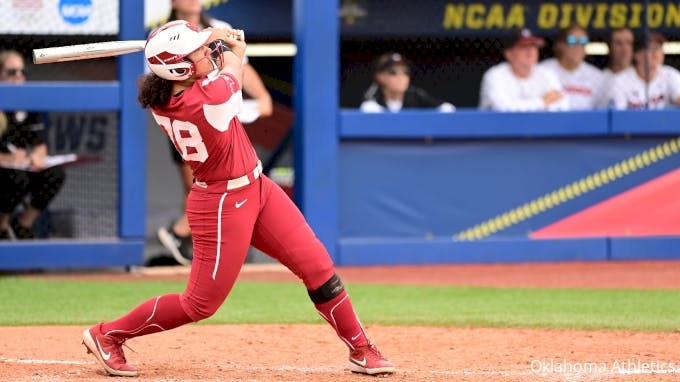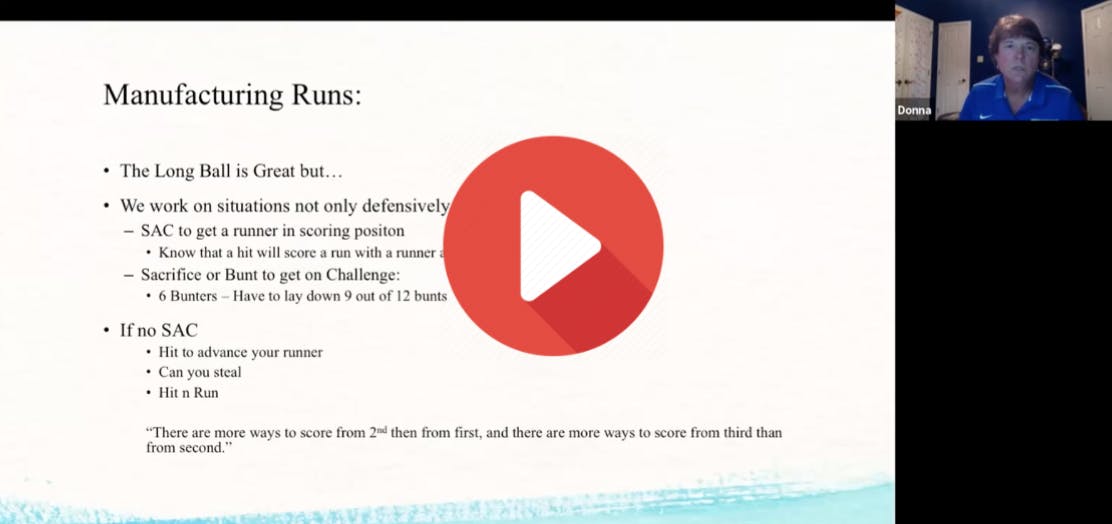Featured courses
- How to Become a Softball Pitcher by Brandon Ogle
- How to Perfect Pitch-Calling For Your Softball Team by Grant Young
- How to Maximize Your Softball Pitcher's Abilities by Grant Young
- How to Create a Softball Team’s Offensive Mindset by Grant Young
- Three Competition-Based Hitting Drills For Your Softball Team by Grant Young
- Three Great Drills For Softball Infielders by Grant Young
- How to Find and Develop Elite Softball Pitchers by Grant Young
- How to Create Runs on the Softball Basepaths by Grant Young
- 5 Biggest Mistakes Softball Coaches Make by Brandon Ogle
- 3 Softball Drills To Do At Home by Brandon Ogle

How to Create a Softball Team’s Offensive Mindset
- By Grant Young
One of the hardest aspects of coaching softball is getting players to overcome the various mental hurdles they face at the plate. Of course, it’s natural for all humans to experience self-doubt and negative thoughts at times. This is exacerbated in a sport like softball, where a hitter is destined to fail much more often than they’re going to succeed.
This is why cultivating a sturdy mindset at the plate, one that doesn’t view success in terms of hits or home runs, but in quality at-bats and personal progression, is one of the most important qualities a coach can impart to their player.
These lessons won’t only benefit the player at the plate, but they will continue to serve them long after their softball days are done, once they experience the harsh realities that the real world is sure to provide.
Softball coach Donna Fields knows a thing or two about cultivating success for her players, both on and off the field. Coach Fields just finished her 27th season at the helm of the St. Mary’s Rattlers softball team in 2024. Already a member of the St. Mary's Athletics Hall of Fame, Fields is the only Rattler in school history with a national championship as a player and coach. On December 10, 2021, Fields was also inducted into the National Fastpitch Coaches Association (NFCA) Hall of Fame.
Across Coach Fields’ incredible coaching career, the Rattlers have won 18 conference titles, four NCAA Regionals, and the 2002 NCAA title.
In Coach Fields’ ‘Building Offensive Players: Getting Them to Buy into Your Offensive Mindset’ Course, she details the precise methods she has used across her nearly three decades of head coaching to build an offensive mindset that her entire team encompasses, regardless of what their stats say.
We have compiled some of her strongest insights below, to that you can get a glimpse of the ways Coach Field has built and sustained such a winning program.
Your Offense Depends on your Personnel Along with your System
“As I work each day, I look at my athletes and I try to create our practice to where I can see what our athletes are able to perform, what their strengths are, what their weaknesses might be. Definitely build on our strengths and try to make our weaknesses stronger on a day to day basis.”
Coach Fields stresses that a team’s offensive mindset is going to change each year, depending on who is on each team’s roster. If your team has more power hitters, then you should alter your approach to give those power hitters opportunities to hit with runners on base, and emphasize swinging for the fences. And if you have a more speed-focused lineup, then you should facilitate a mindset that prioritizes reaching base, playing small ball, and manufacturing runs that way.
The important point here is that softball coaches must remain adaptable (meaning, not set in their ways) if they’re going to see success each year. This requires humility, which is a great quality for not only coaches to have, but for coaches to instill within their players through example.
Routine Hitting
Whenever Coach Fields finds the time, she tries to make her team’s batting practice sessions into what she calls ‘Routine Hitting’.
This is where she’ll divide her hitters into four to six groups, with one group doing station work (which will vary, depending on what your offense is working on at the moment, such as bunts or anything else related to small ball), a group in the batting cage (whether it be front toss, hitting off of the machine, or anything else), a group hitting on the field with live batting practice, and another group shagging on the field.
This allows Coach Fields to bring strategy into her team’s hitting, and simulating scenarios that players will actually experience in the game. Giving them these repetitions when the pressure isn’t so great is a fantastic way to help them get comfortable when the games to begin to count, and there’s another team in the opposing dugout.
Utilizing this style of batting practice ensures that your players are remaining active and engaged at all times, finding ways to improve and help their teammates out. Even in the shagging portion, players should be at their normal positions, getting as many game-like repetitions as possible from the hitters who are taking live batting practice.
Manufacturing Runs

Coach Fields notes that manufacturing runs is a major part of her team’s practices, regardless of whether her team is more catered toward power hitting.
The reason for this is that, while your team might be able to rely on the long ball during the regular season or in conference play, there will come a time at some point later on in the season where you’ll face a pitcher that’s good enough to stop your power hitters from hitting home runs.
And when that happens, you need to have plan B, so that your offense still has a chance to succeed.
Coach Fields notes how she’s a big believer in sacrifice bunting, in order to get her baserunners into scoring position. While this isn’t always the most popular choice, it’s a great way to manufacture runs against elite pitching.
But coaches can’t just assume their players (hitters and baserunners alike) will know how to execute a sacrifice bunt scenario to a tee. Therefore, players must get these repetitions during practice to feel good about doing so in high-stakes, postseason situations.
All of Coach Fields’ points are about creating comfortability for players at the plate, which she believes is the most important part of a solid offensive mindset. And it’s within all coaches to help cultivate that feeling for their teams—which should lead to success.

